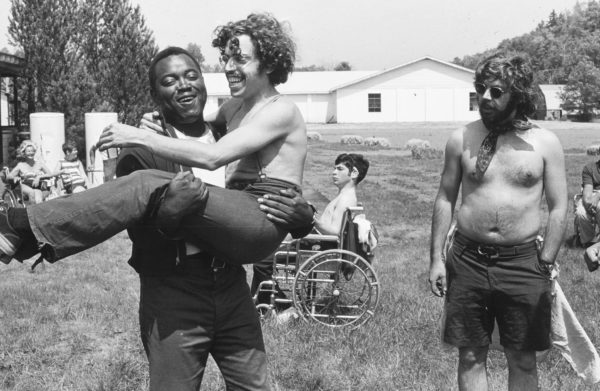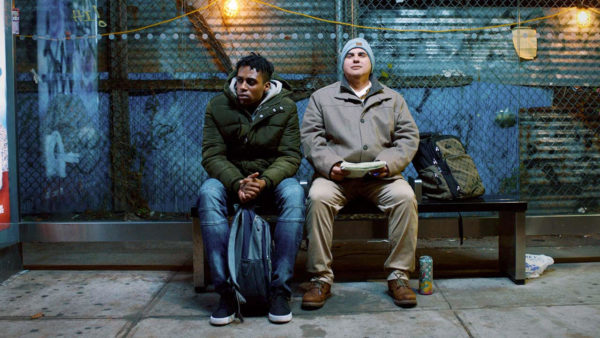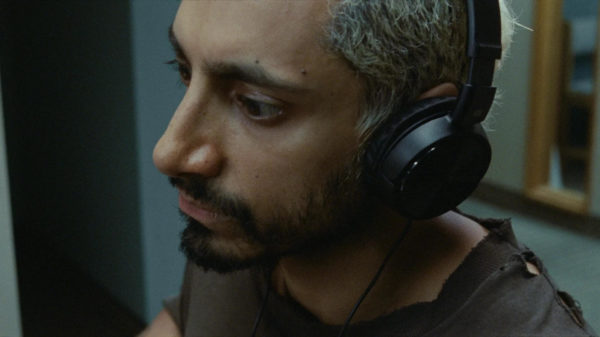This is a year of many historic firsts at the Oscars. With three disability- and Deaf-centered films contending for top prizes, disabled folks are wondering if the tide may finally be shifting in our favor.
A Fraught History
People with disabilities have waited a long time to feel represented in Hollywood. Few occasions illuminate this fact more clearly than the Academy Awards, which tend to reinforce the industry’s exclusionary practices by honoring films that embody them.
Consider the number of non-disabled actors who won Oscars for their portrayals of Deaf or disabled characters—a tradition that denies opportunities to performers with disabilities who struggle to find roles. This trend is reflected in TV, as well: a 2016 White Paper on the Employment of Actors with Disabilities in Television from the Ruderman Family Foundation found that “while 20% of the U.S. population has a disability, fewer than 2% of all television characters do.” Of that meager 2%, less than 5% were played by disabled actors. By 2018, that number had jumped to 21.6%.
Look at the disability stories the Academy frequently rewards: the newly paralyzed character who seeks suicide, or another who finds redemption by overcoming their disability. What about the films that use blindness or Deafness as a plot device to instill horror in the audience, or that otherize bodily differences by imbuing our most fearsome villains with them?
There have been signs of progress—Coming Home (1978) offered compassion and authenticity in its depiction of disabled veterans undergoing rehabilitation, and Deaf actress Marlee Matlin took home the Oscar for Best Actress in 1987, to name a few–but these moments are rare. Indeed, this track record feels even more dismal when we consider that non-professional actor Harold Russell, a double-amputee World War II vet, won the Academy Award for Best Supporting Actor in 1947. The lack of forward momentum in the decades since Matlin’s win has inspired a well-spring of disability activism pushing for improved representation. This movement reached a fever pitch in 2016, with international protests of Me Before You, the latest tale of disability suicide, and the years following have seen an uptick in honest portrayals.
Slow But Inevitable Progress
2020 saw the release of Crip Camp, Feeling Through, and Sound of Metal—three films that delve, to varying degrees, into the experience of disability and Deafness with an emphasis on the social understanding of disability (i.e., that it isn’t something to be fixed). These films signify both the progress we’ve made and the areas where progress still remains to be seen.

Crip Camp tracks the true story of how a summer camp for kids with disabilities ultimately inspired a powerful movement for equality—what we in the community call the mainstream disability rights movement. It’s a story with which many of us are familiar, but the fact it was created by a disabled filmmaker, James LeBrecht, enjoyed a widespread release via Netflix, and received sweeping acclaim from disabled and non-disabled audiences alike, culminating in an Oscar nomination for Best Documentary Feature, speaks volumes of its importance—and the change it represents for disability films. Crip Camp can be streamed on Netflix.

Feeling Through, one of this year’s nominees for Best Live Action Short, marks a historical milestone as the first film to feature a deaf and legally blind actor, Robert Tarango in a leading role. The film, based on writer/director Doug Roland’s actual experience, depicts an unhoused youth, Tereek, who helps a deaf-blind man, Artie, find a bus stop and take the correct bus home. Through adaptive communication, the two form a bond and alleviate each other’s social isolation. By auditioning and hiring an actor immersed in deaf-blind culture, the film achieves an authenticity that enriches the viewer’s experience—and provided a job opportunity for an aspiring deaf-blind actor. Of course, this necessitated creative accommodations, but as Roland explained, “Having Robert be a part of this wasn’t a challenge. He made the film what it is.” Feeling Through can be streamed here.

Sound of Metal, the debut film of Darius Marder, relates the story of Ruben, a heavy metal drummer who loses his hearing and learns what it means to be Deaf. While the film, nominated for six Oscars, is notable for its treatment of Deafness as a culture rather than something to be fixed, it has received mixed reactions from the Deaf community. Some feel that its message is simplistic and caters to a hearing audience. Others praise the film for its depiction of the initial stages of Ruben’s hearing loss and view the film as a powerful teaching tool for those who are wholly uneducated about issues affecting Deaf folks—a kind of introductory course. Casting proved contentious as well. Although the film cast several Deaf actors in supporting roles, Ruben was played by a hearing actor (Riz Ahmed) and Joe, who serves as a mentor to Ruben, was played by a child of Deaf parents (Paul Raci).
Sound of Metal can be streamed on Prime Video.
Moving in the Right Direction
So, is 2021 the year for disability representation? The answer is, it’s complicated.
Crip Camp’s Oscar nod symbolizes, at least in my mind, that the Academy now views people with disabilities as a valid social minority with its own history and challenges. That the film was envisioned and crafted by a disabled filmmaker points toward the ultimate goal of disability representation—that we are granted the opportunities to write, direct, produce, and act in our own stories. Future films of disability history should aspire to represent the rich diversity of the disability community—how we intersect with every other minority group: BIPOC, LGBTQ, and others. We must recognize those whose stories often go untold in our own community: people with intellectual and developmental disabilities, people with invisible disabilities, people with multiple disabilities, mental illness, and more.
Feeling Through’s authentic casting of a deaf-blind actor is a historic milestone. We should expect and demand more films like it, that break even more boundaries by putting deaf-blind folks in writing rooms and behind the camera.
Sound of Metal provides an entry-level glimpse of Deaf culture, and perhaps for the first time, communicates to hearing audiences that Deafness is not a problem in need of a cure. Now it’s time to support Deaf filmmakers, actors, writers, directors, and producers in telling their own authentic stories. It’s time to push the conversation forward.
Have you seen these films? We’d love to know what you think in the comments!
—Eric Clow, Art Spark Texas
